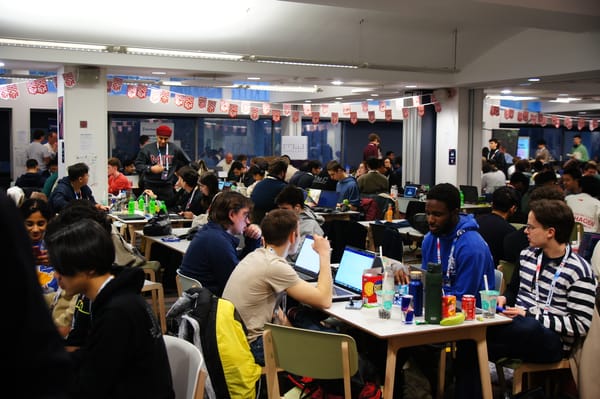WiEE: Circuits, switches, transformers & resistors.
Last Wednesday, Felix was given exclusive insight into Women in Electrical Engineering’s (WiEE) seminal event aimed at inspiring the next generation of female engineers. The “Tech for Good Hackathon” welcomed 75 girls from secondary schools across London for a day of interactive activities showcasing the opportunities within the field of electrical engineering.
Aimed at pre-GCSE students and thus before key academic decisions are made, the event was designed to spark early interest in engineering among the 13-14 year old girls. WiEE President Bhavya Sharma told Felix that by promoting the subject at a grassroots level, they hope to have a bigger impact than efforts made further down the line. Teachers at the event echoed this sentiment, noting that Year 9 is a crucial turning point when students begin refining their interests.
The day began with a panel discussion featuring four esteemed Imperial professors from the Electical & Electronic Engineering (EEE) department. Dr Sonali Parbhoo, Dr Chen Qin, Dr Tania Stathaki and Mrs Esther Perea Borobio represented cutting edge research in areas including AI and computer vision, as well as their tangible applications in areas such as healthcare.

Discussion revolved around the ability to have a real-world impact within engineering and the opportunity for continuous learning as the field evolves at a rapid pace. The panel also explored future trends, speculating on AI-driven patient-doctor interactions and the increasing importance of ethical considerations as automation progresses.
On the issue of female representation, Imperial College professors and students shared their experiences as women in a traditionally male-dominated discipline, noting that confidence was key to their success. Imperial’s own statistics indicate as recently as 2020, female students made up just 20% of those in the EEE department, reinforcing the importance of events such as this.
In the afternoon, students’ creativity was put to the test in a hackathon. They were tasked to design technology solutions which addressed a problem in one of 3 three key areas: health, sustainability, and education. This was complemented by workshops which allowed the students to see the more technical side of engineering, as they learned to design and build an LED Pulser circuit and assemble a DIY smart light switch.
WiEE received feedback which revealed that many attendees were surprised by the vast applications of engineering beyond mechanics, noting that the event broadened their understanding of the field and its opportunities. Participants also praised the fun hands-on challenges as well as the incredible support they received from Imperial’s students volunteers to tackle them.
Following the event’s success, Bhavya shared with Felix her hopes that this initiative would be the first of many. Teachers at the event also expressed enthusiasm for expanding similar programs, with some raising the possibility for even earlier intervention at the primary school level.
With momentum behind it, this initiative could mark the beginning of a broader movement that encourages more young women to see themselves as the astrophysicists, software developers, and biomedical engineers of the future.









